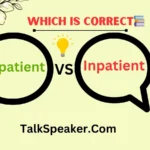Understanding the correct use of “paid” and “payed” can be crucial for clear and effective communication. While “paid” is widely used in everyday language, “payed” appears in more specific contexts.
This blog post delves into the nuances of these terms, ensuring you use them accurately in both informal and formal settings.
Understanding the Terms
Definition of “Paid”
“Paid” is the past tense and past participle of the verb “pay.” It is used in a variety of contexts to indicate that money has been given in exchange for goods or services. Here are some key points:
- Everyday Use: “Paid” is commonly used in everyday situations, such as paying for groceries, rent, or services. Examples include:
- “I paid for the coffee this morning.”
- “She has paid her tuition fees for the semester.”
- Formal Use: In formal writing and professional settings, “paid” is the correct choice. For instance:
- “The invoice has been paid.”
- “He has paid his dues to the organization.”
Definition of “Payed”
“Payed” is an archaic or specialized term primarily used in nautical contexts. It refers to a different form of the verb “pay,” specifically used in maritime terminology. Here’s what you need to know:
- Nautical Use: In maritime language, “payed” describes the process of applying a sealant to a ship’s seams to prevent leaks. For example:
- “The crew payed the ship’s seams to protect it from water damage.”
- Historical Context: “Payed” was used in historical texts and documents related to shipbuilding and maintenance. Its usage has diminished in modern language but still appears in specialized contexts.
Correct Usage of “Paid”
Everyday Contexts
In everyday scenarios, “paid” is used to describe transactions where money is exchanged. Here are some examples to illustrate its proper use:
- Purchasing Items:
- “I paid $50 for the concert tickets.”
- “She paid her phone bill yesterday.”
- Receiving Payments:
- “He has been paid for his freelance work.”
- “They paid off the loan early.”
Using “paid” correctly ensures clear communication in both casual and formal contexts.
Formal and Professional Writing
In professional settings, using “paid” correctly is crucial for maintaining clarity and credibility. Consider these guidelines:
- Contracts and Agreements:
- “The client has paid the full amount as stipulated in the contract.”
- “The company will pay the agreed-upon fee by the end of the month.”
- Business Correspondence:
- “We have received payment for the invoice dated March 15.”
- “Please ensure all payments are made promptly to avoid any delays.”
Table: Common Uses of “Paid”
ContextExampleDaily Transactions“She paid for her groceries.”Professional Emails“The payment has been processed.”Contracts“The vendor has been paid in full.”
Correct Usage of “Payed”
Nautical and Historical Contexts
“Payed” has a specific application in maritime and historical contexts. Here’s what to know:
- Maritime Terminology:
- “The ship’s seams were payed to ensure it remained watertight.”
- “The crew used tar to pay the hull of the ship.”
- Historical Usage:
- Historically, “payed” was used in documents related to ship maintenance. Its use today is largely limited to historical texts or specialized maritime discussions.
Examples and Misconceptions
Misunderstandings about “payed” often arise in everyday language where “paid” is the correct term. For instance:
- Incorrect: “I payed the bills last week.”
- Correct: “I paid the bills last week.”
Avoid using “payed” in general contexts where “paid” is appropriate. This helps prevent confusion and maintains professionalism.
Common Mistakes and How to Avoid Them
Mixing Up “Paid” and “Payed”
Confusion between “paid” and “payed” can lead to errors in both written and spoken communication. Here’s how to avoid them:
- Common Mistakes:
- “The company has payed its employees.” (Incorrect)
- “She has paid her debts.” (Correct)
- Tips for Avoidance:
- Remember: Use “paid” for transactions and financial contexts.
- Reserve: Use “payed” only in historical or maritime contexts.
Proofreading Tips
To ensure you’re using the correct term, consider these proofreading strategies:
- Use Grammar Tools: Tools like Grammarly or Hemingway can highlight incorrect uses of “payed.”
- Consult Dictionaries: Verify definitions in reputable dictionaries to confirm usage.
Table: Proofreading Checklist
TaskDescriptionUse Grammar ToolsCheck for incorrect usage of “payed.”Verify DefinitionsConsult dictionaries for accurate ContextEnsure “payed” is used only in specific contexts.
Conclusion
In summary, “paid” is the term you’ll use in most situations, from daily transactions to formal business writing. “Payed” should be reserved for historical or nautical contexts where it has specific meaning. Mastering the correct usage of these terms ensures clarity and professionalism in your communication.

Amelia Harris, a passionate educator, simplifies English grammar and vocabulary for learners of all levels. With her engaging style, mastering English has never been easie




